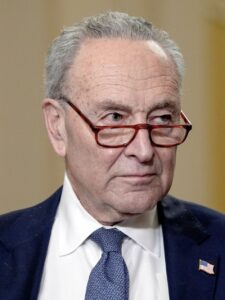President Joe Biden issued a series of last-minute pardons for allies potentially at risk under President Donald Trump’s incoming administration. Among the recipients were Liz Cheney, Dr. Anthony Fauci, Gen. Mark Milley, and other Jan. 6 Committee members. Biden’s aides described the pardons as protective, but critics argued they could backfire legally.
The pardons shield recipients from prosecution for prior actions but require them to testify under oath if subpoenaed. Legal expert Jesse Binnall noted they cannot invoke the Fifth Amendment, making them vulnerable to perjury charges. Critics like retired U.S. Army officer Kurt Schlichter called for testimony outside Washington, D.C., citing perceived political bias in the city.
Trump reacted sharply, calling the pardons a mistake. “Why are we helping people like Liz Cheney? She’s a disaster,” he said, emphasizing plans to scrutinize Biden’s allies despite their pardons.
The move has reignited debates over politically motivated pardons and their implications for accountability.
WATCH VIDEO AND READ MORE BELOW:
Former Arizona state legislature candidate Josh Barnett (R) clarified on X that presidential pardons are not all-encompassing and do not protect against future offenses.
“A pardon typically forgives specific crimes committed before it was issued,” Barnett explained. He noted that new offenses, such as treason discovered or committed after the pardon, would not be covered. This could potentially apply to figures like Gen. Mark Milley, who reportedly assured his Chinese counterpart in the final days of Trump’s first term that he would warn them of any U.S. military action.
Barnett emphasized that a pardon’s scope is limited to the crimes explicitly or implicitly addressed at the time it is granted. New allegations arising after the fact remain prosecutable.




